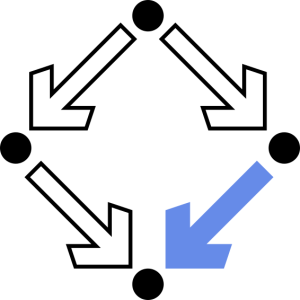This course aims to build a greater knowledge in several aspects of rewriting by practicing the theoretical content of the main lecture in many exercises.
- Lecturer: Cleopatra Pau
This course deals with the formal modeling of concurrent systems such as parallel or multi-threaded programs, distributed hardware and software systems, mobile systems, and the like.
- Lecturer: Wolfgang Schreiner
This course presents the major methods for defining the meaning of languages (operational semantics, denotational semantics, axiomatic semantics) and programs and discusses their relationship.
- Lecturer: Wolfgang Schreiner
The course starts with a proof theoretic approach to propositional and predicate logic and their completeness, followed by basic recursion theory and it's formalization within formal arithmetic. From this point we can move from arithmetic to Gödel’s Incompleteness Theorem and Gentzen's proof of the consistency of arithmetic. At this point we will delve into basic type theory, Curry-Howard correspondence and it's connection to system T which provides an alternative consistency proof of arithmetic. Both of this Highlight the existence of functions beyond arithmetic of which we provide a few examples . We then discuss Second-order arithmetic, Strong type systems in correspondence with Second-order arithmetic (System F), and the relationship between subsystems of second-order arithmetic and mathematical analysis (Reverse Mathematics).
- Lecturer: David Cerna
- Lecturer: Cleopatra Pau
- Lektor: Wolfgang Schreiner
In this seminar, we explore current research and systems for specifying
and verifying computer programs (specification languages, program
verifiers, model checkers, ...).
- Lecturer: Wolfgang Schreiner
